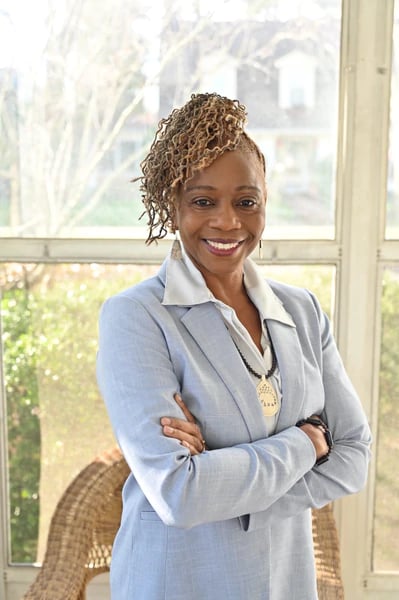Forgiveness and the Healing Journey
Healing is a radical expression of self-love because it requires self-centeredness. Adult survivors of childhood sexual abuse often learn to focus on others instead of themselves. Turning inward to travel the healing path can feel like a failure instead of freedom. The heavy emphasis that society places on forgiveness contributes to the challenges of healing. A recommendation or request for forgiveness directs the survivors’ attention away from themselves and on the violator. Survivors need to be invited and supported in becoming self-centered.

Modern-day Virtue
Through religion, culture, and professional services, forgiveness is presented as a modern-day virtue. Some mental health professionals and religious leaders consider forgiveness the holy grail of healing. Regardless of the depth of harm or the offender’s repentance, forgiveness is a therapeutic or spiritual objective.
Any discomfort or negative emotions surrounding the inflicted harm is assumed to be related to a metaphysical bond between the offender and the survivor. “Don’t let someone rent space in your head” is the incentive given to forgive. So, some survivors state it as a badge of honor. “I’ve forgiven the person who hurt me” is sometimes a spiritual pledge or an emotional emblem.
The Wrong Response to Trauma
Unfortunately, the virtue of forgiveness overrides the process of healing deep wounds. Justified anger is interpreted as a need for forgiveness, as are depression and anxiety. Forgiveness is deemed more important than connecting to your inner child, taking care of your body, creating healthy boundaries, or letting go of secrets.
Unfortunately, people who claim forgiveness often fail to live empowered lives. Survivors often internalize anger to extend forgiveness to a violator. Survivors commonly boast about forgiving their violators while admitting that they hate themselves. They don’t make the connection between self-hate and offering unconditional forgiveness. Where forgiveness requires a survivor to consider their attitude toward someone else before healing their relationship with themselves, forgiveness is the wrong response to trauma.
Trauma is a complex experience that is lodged within the psyche. It can affect every aspect of a person’s life. While forgiveness contributes to the cohesiveness of a community, the survivor pays a heavy price. We should never require a survivor who has experienced trauma to forgive a violator for several reasons.
1) Trauma requires a focus on self, not another person. To suggest to a survivor that their healing is contingent on resolving a relationship with the person who harmed them is secondary harm. The suggestion can create more profound feelings of victimization.
Healing requires survivors to focus on their relationship with themselves. As they heal their relationship with themselves, the forgiveness of their violator may or may not arise. Even in the absence of forgiveness, many survivors thrive.
2) “Unforgiveness” is not the opposite of forgiveness. Forgiveness exists on its own continuum, but unforgiveness isn’t the opposite end of that continuum. Survivors heal in various states of unforgiveness. At the most basic level, unforgiveness means that the survivor sees the violator as inhumane and immoral according to their history. Nothing else about the violator is ever considered. Where other family members may see goodness in the violator, the survivor sees only the harm the violator caused.
Survivors deserve to be understood, not mandated by harmful norms of forgiveness. Survivors can be empowered when their views are respected instead of demonized more than the acts of the violator.
Forgiveness is not always the high road; it is often the back road, merely the path of least resistance.
3) The virtue of forgiveness usually comes with an expectation of silence. In a state of unforgiveness, survivors are more willing to speak their truth and allow natural consequences for the violator.
When survivors focus on healing instead of avoiding consequences, living in their truth is often interpreted as revenge. Survivors are blamed for disruption in the family, job, or organization. Research shows that the deepest harm occurs most often between people who know and love each other. In cases of childhood sexual abuse, the closer the kinship between victim and violator, the more likely the victim is to never disclose the abuse, even long into adulthood. Reporting and conviction for these personal traumatic crimes are less than 5%. A culture of forgiveness has given a clear message that if you want to harm someone, do it within familiar walls.
Peace Through Unforgiveness
Often, peace is found within the status of unforgiveness. The condition of unforgiveness creates enough distance from the violator to process the pain. When enough of the pain has been processed and the victim returns to a state of homeostasis, forgiveness may arise naturally. Forgiveness does not cause the pain to stop. Stopping pain causes forgiveness.
Trying to stop pain by forgiveness is like putting a box of cake mix in the oven and expecting to get a cake. That does not work, and you could burn down your house. You have to pour the cake mix into a bowl and add some ingredients. Once you put the mix in the oven, ultimately, you have to let the oven do the work. So, it is with forgiveness. Put the ingredients of healing into the wounds and create a warm environment. Many lives could be better-lived if we stopped passing down a dangerous culture of forgiveness and put survivors at the center of their healing.

WRITTEN BY:
By Rosenna Bakari, Ph.D.
Dr. Rosenna Bakari is the author of The Healing Journey: Relationships and Wellness Guide. Forgiveness is just one of the radical topics she discusses in her book. She also teachers how to apologize, re-parent, and build relationships when you don’t trust people. She has been revolutionizing the healing journey for survivors since 2010 when she founded Talking Trees, Inc., the first organization to support adult survivors in living openly to heal.